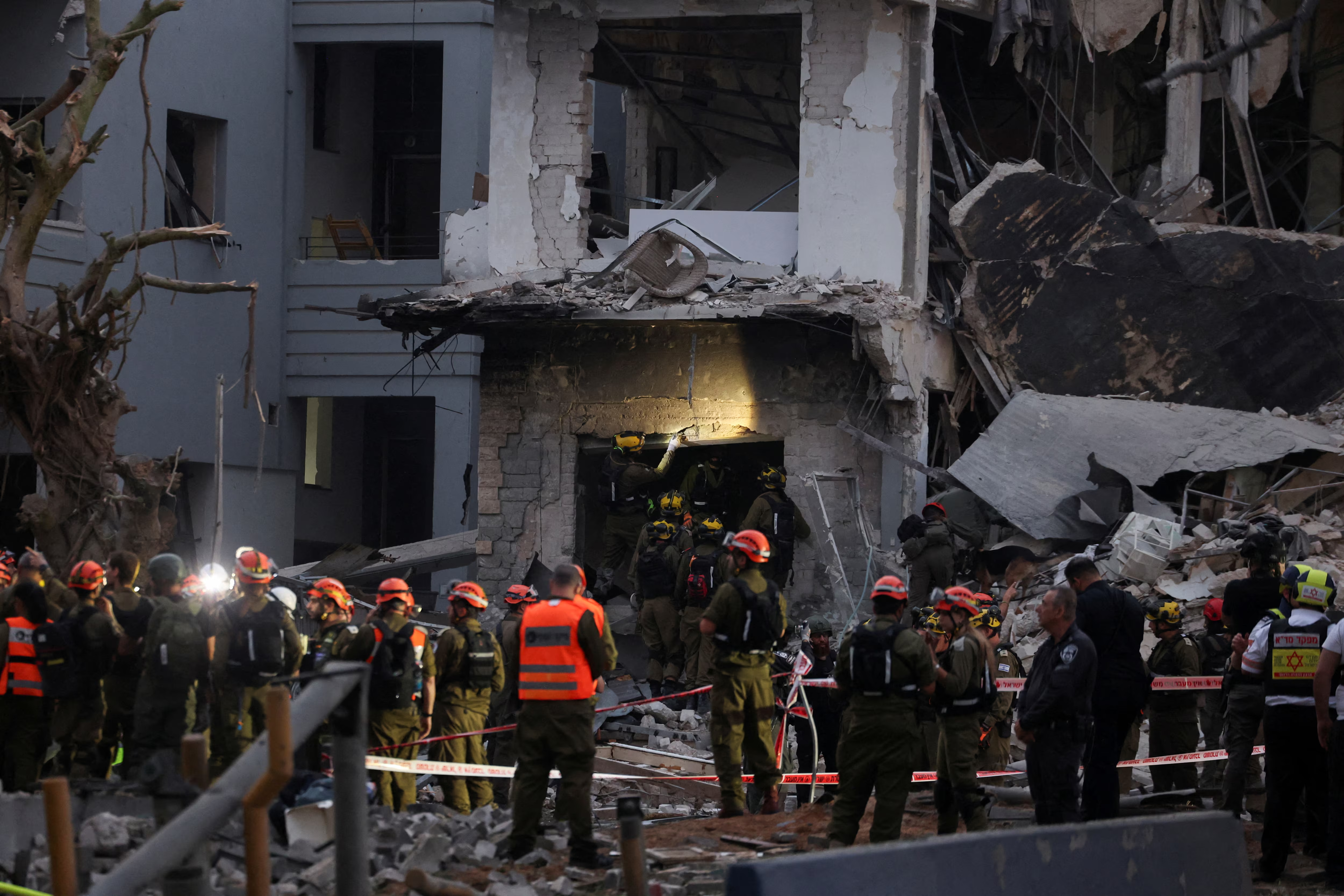Behind the escalation: Geopolitical stakes in Israel’s strike on Iran

Department of Research, Studies and International News 19-06-2025
As the Israeli-Iranian confrontation intensifies, the international community observes with mounting concern. In just three days, the death toll has exceeded 90, with at least 80 casualties in Iran and more than 10 in Israel. While Israeli officials continue to insist the attack was a “preventive” measure, the evidence and broader context suggest a deeper, more politically motivated agenda.
Israel’s official narrative claims that the strikes were designed to thwart an imminent Iranian nuclear threat. Yet, no substantial proof has been presented to support the assertion that Iran was on the verge of producing a nuclear weapon. The operation, which involved a series of precision strikes on Iranian military, energy, and government sites, clearly indicates long-term strategic planning rather than a reaction to any emergency.
Even the International Atomic Energy Agency’s (IAEA) report, released just days before the assault, does not support the claim of urgency. The report criticized Iran for past nuclear violations but did not reveal any new or alarming developments. Suggesting that this document justified a full-scale military assault appears disingenuous and opportunistic.
Further undermining Israel’s narrative is the range of targets selected. The strikes did not solely focus on nuclear infrastructure. Instead, they included oil depots, missile bases, and political figures. Notably, reports have emerged indicating the assassination of Ali Shamkhani, a prominent military figure and former defense minister known for his role in Iran’s recent diplomatic outreach. Though Iranian authorities have yet to confirm his death, his elimination, if true, seems more like a deliberate attempt to sabotage diplomacy, particularly ongoing talks between Tehran and Washington, than a nuclear “decapitation” strike.
This tactic is consistent with Israel’s long-standing policy of targeted assassinations aimed at destabilizing perceived adversaries from within. Removing influential leaders is intended to cripple institutions and disorient state structures. However, this approach rarely yields the intended political change. On the contrary, such actions tend to consolidate internal solidarity. In Iran, even citizens critical of the current government are now rallying around national sovereignty in response to the external aggression.
Meanwhile, Israeli Prime Minister Benjamin Netanyahu has openly called on Iranians to rise against what he termed a “repressive regime.” This aligns with speculation that the true motive behind the attack may be an attempt to trigger regime change, a goal long echoed in some Western circles. However, the idea that an external assault would inspire domestic rebellion in Iran reflects a fundamental misunderstanding of the country’s political dynamics. Iranians, regardless of their internal differences, have repeatedly demonstrated a unified resistance to foreign intervention.
Much like in Israel itself, where critics of Netanyahu’s policies have temporarily united behind national security narratives, Iranians across the political spectrum are likely to prioritize national independence in times of foreign threat. By bombarding Iran, Israel is not weakening the regime; it is strengthening the national will.
The timing of this operation is also significant. Israel currently faces mounting pressure over its actions in Gaza, where its military campaign has drawn widespread international condemnation. Countries once silent or supportive are now re-evaluating their positions, with several preparing to formally recognize Palestinian statehood. Moreover, international legal proceedings are tightening. The International Criminal Court is reportedly preparing charges against Netanyahu, and the International Court of Justice is soon expected to deliver a ruling on Israel’s occupation policies.
In this context, launching a major attack against Iran can be seen as a calculated diversion. By reigniting a security crisis, Netanyahu aims to reshape the narrative, from accountability for war crimes to defending against existential threats. Iran, still viewed with suspicion by many in the Global North, serves as a convenient scapegoat to unify Western opinion and distract from Israel’s own transgressions.
This tactic leans heavily on Israel’s longstanding doctrine of “security,” which has often been used to justify expansive, extraterritorial operations. From Gaza to Lebanon, Syria, Yemen, and now Iran, Israeli military strategy rests on the notion that preemptive force is not only permissible but necessary, even if it means violating international norms.
But this latest escalation may backfire. The global balance of power is shifting. Countries like Russia, China, and Iran are increasingly coordinating their diplomatic and strategic responses to what they see as Western double standards. The Global South, too, is beginning to question the unchecked impunity Israel has enjoyed for decades.
Ultimately, Israel’s gamble may secure temporary headlines, but it will not silence the rising demands for justice, both in Gaza and across the region. As Netanyahu bets on chaos to preserve his power, the world watches closely, not just to assess the damage, but to consider what a multipolar future may demand of all actors, including those long shielded from accountability.





